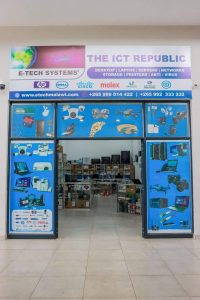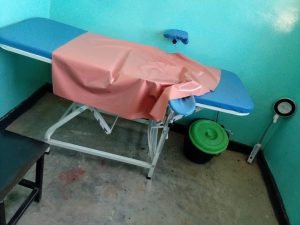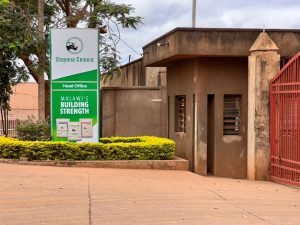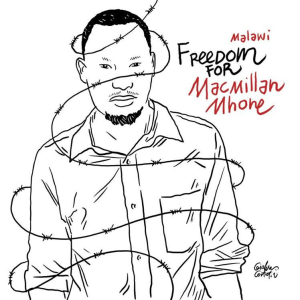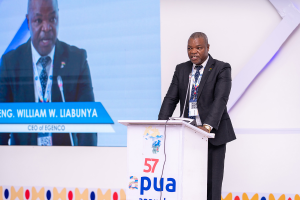FRESH ELECTIONS TRIGGER DIGITAL SURVEILLANCE FEARS

At the time when the world is grappling with coronavirus (Covid-19), the onset of 5G innovation seems to compound the already complex situation as people try to link the two.
Notwithstanding the global efforts to decipher the 5G-Covid 19 connection, particularly the 5G public protests have exposed the huge mistrust and suspicion between Governments of the world and their citizens.
Although Malawi has not even started talk about investing in the 5G technology, already its feathers are ruffled with its own share of mistrust and suspicions related to digital surveillance.
Opposition politicians and civil society leaders recently accused incumbent President Peter Mutharika of inviting Israeli technology experts to among other things, help them install gadgets used to spy and steal intelligence that will allegedly be used to rig the impending fresh presidential elections.
The opposition politicians have continuously claimed that the ruling Democratic People’s Party (DPP) government has been busy trying to consolidate its powers by frustrating all efforts to fulfil the constitutional court recommendations.
On February 3 2020 Malawi’s Constitutional Court nullified the May 2019 presidential elections and ordered fresh polls within 150 days.
Hackers from Israel
In a twist of new developments, a letter dated March 2 2020 from Visa Officer, Gloria Mtande, directed the Malawi head of Immigration at Kamuzu International Airport, in Lilongwe, to issue Gratis Entry Single Visas on arrival into Malawi for three unannounced Israeli nationals — Aviv Osher (passport number 39017885), Bar Lev Omer (passport number 32212418) and Tsairi Marom (passport number 39023709).
Mtande wrote in the letter that the approval for Gratis Entry Single Visas to Malawi was granted for the three, on invitation by The State House on an undisclosed business visit.
Immigration Department spokesperson, Joseph Chauwa, described the issuance of gratis visas for the suspicious three Israelis as normal practice.
“It is normal for certain officials to get special clearance when they are in the country for government business, for instance. The point is they do not have to pay. Ministries and government departments ask for such clearance all the time when they have people coming into the country for official duties,” explained Chauwa.
Fears of Digital Surveillance to Rig Elections
Following the visit by the three Israelis, the main opposition Malawi Congress Party (MCP) galvanized a grouping of young people from opposition political parties, and wrote President Mutharika on March 31 2020.
The letter claimed that, ‘through MACRA [Malawi Communication Regulatory Authority], President Mutharika has forced mobile network operators to engage and provide Virtual Private Network (VPN) at State house, Lilongwe.
“While the service providers are at liberty to provide network links to any customer, your requests did not follow the laid process and procedure with the service providers. They were bent on forcing and shortcutting protocol,” the youthful opposition grouping stated in the letter.

Leader of the grouping, Daud Suleman said, ‘the purpose of the links is to intercept data transmission going into MEC (Malawi Electoral Commission), networks, especially results coming from district tally centres into the national tally centre’. MEC is a body charged with electoral events management in Malawi. “It is these very same links,” the letter stated, “that have opened access to the mobile phones of the Malawian population as well as putting MEC infrastructure at a capture state.” They said this would be possible with the assistance of the said foreign agents to spy and counter intelligence on members of the general public. “We know that you have hired foreign nationals from Israel, whose expertise is on espionage and counter intelligence, to be active in Malawi with the intent of helping to rig the elections by intercepting communication channels, and division infrastructure that would tap into MEC servers during elections,” the grouping claimed.

Denial by President Mutharika
When contacted President Mutharika denied through his Spokesperson Mgeme Kalilani that ‘this is news to us’.
And in an interview with a local radio station, Kalilani described the opposition parties’ allegations as baseless saying this is not the first time they have chosen this path.
“It’s almost a pattern similar to last year’s allegations… they are afraid of the coming elections. If they have evidence let them come and prove what they are saying,” he challenged.

Government Calls it “Junk Talk”
On April 1, Minister of Homeland Security, Nicholas Dausi and his counterpart Minister of Information and Communications Technology Mark Botomani held a joint press briefing in the Capital Lilongwe to rebut the claims. Botomani described the allegations by Suleman as, childish, ill-conceived and malicious.
“There are no Israelis at Statehouse; and in fact, no Israelis have ever worked at Statehouse,” said Botomani. He challenged Suleman, who was MCP key information technology expert witness in the presidential election case, to bring forth evidence of the claims of Israeli spies.
Botomani, who is also government spokesperson, described the allegations as “unfounded and junk talk.”
Daudi Suleman to be arrested for questioning
And minister Dausi, who once worked as personal body guard for ex-President Kamuzu Banda whose then single party ruling MCP had committed many atrocities, threatened Suleman with a pending arrest.
“Daud Suleman must take care!” warned Dausi. “He cannot claim to say he has informers at The State House. As someone who once worked for President’s security at the State House, what he [Suleman] said means that they are planning to assassinate [the] President,” Stated Dausi.
Dausi said as someone responsible for state security matters, it also means they look after the President. He insisted that the security apparatus will force Suleman to reveal about his informers.
“We are going to know about his informers since he has said it publicly for the world to know, we will ensure that we get the information from him,” insisted Dausi.
“What we say is that the existence of a president is the existence of the state,” he explained.
Communication Regulator Still waiting for VPN application
While MACRA said they have not received any VPN application from anyone else, the country’s two mobile phone network companies were noncommittal.
“MACRA does not know anything about the issues you have raised,” said Clara Ngwira, MACRA Communication Manager through an email response.
No Authority to comment – Mobile Phone Service Providers
Airtel Malawi Corporate Communications and CSR Manager, Norah Chavula-Chirwa said her company was not the right authority to comment on application matters. And TNM Brand and Communications Manager, Limbani Nsapato said ‘TNM does not discuss individual customer issues.’
“We are not the right authority to comment on the other matters including purported election interference,” said Nsapato.

Malawi’s Level of Surveillance Worrisome
Without establishing if Malawi has such equipment or not, Center for Human Rights and Rehabilitation (CHRR) Acting Executive Director Michael Kaiyatsa bemoaned the level of surveillance in the country which he quizzed its necessity with Malawi’s democratic society.
It is not as if he has no ground upon which his lamentation is based. He says the list of people punished for expressing their freedom of expression online is growing.
“This is worrisome,” he protests.
He says on August 28 2018 police arrested Manes Hale while she was boarding a plane to the US. She was charged with insulting the president for critical remarks she made in her Facebook post. In April 2019, Tumpale Mwakibinga was arrested after he posted on his Facebook page a picture likening the First Lady to cartoon character Rango. In February 2016, the then three opposition MPs Dr Jessie Kabwira, Peter Louis Chakhwantha and Ulemu Msungama were arrested and charged with treason for allegedly plotting a coup through a WhatsApp conversation.
Just recently, on April 7, 2020 Mulanje District Commissioner Michael Chimbalanga suspended Assistant Trade Officer for the district MacDonald Njoka-Phiri over comments he made on social media, which were purportedly seen as insulting President Mutharika.
Governments Use Digital Surveillance SS7 to Hack
It is not like Governments of the world are innocent when it comes to hacking in order to read text messages, listen to phone calls, even to track location of mobile users with just the knowledge of their phone number.,
The Guardian of UK reported recently that this is possible by using a vulnerability in the worldwide mobile phone network infrastructure.
This vulnerability is said to be the one that give hackers, governments or anyone else with access to its remote surveillance powers that the user cannot do anything about.
Governments or hackers are able to connect one mobile phone network to another using a system known as Signalling System No 7 (SS7), which is also called Common Channel Signalling System 7 (CCSS7) in the US or Common Channel Interoffice Signalling 7 (CCIS7) in the UK, reported the article.
Developed in 1975 and with many variants, the Guardian revealed that since most networks use protocols defined by the American National Standards Institute (ANSI) and the European Telecommunications Standards Institute (ETSI), SS7 is a set of protocols allowing phone networks to exchange the information needed for passing calls and text messages between each other and to ensure correct billing.
It also allows users on one network to roam on another, such as when travelling in a foreign country. This is why, once they have access to the SS7 system, The Guardian reported that hackers can essentially have access to the same amount of information and snooping capabilities as security services.
“They can transparently forward calls, giving them the ability to record or listen in to them. They can also read SMS messages sent between mobile phones and track the location of a phone using the same system that the phone networks use to help keep a constant service available and deliver phone calls, texts and data,” reported the publication.
Anyone with a mobile phone could be vulnerable should a hacker gain entry to the SS7 system on any number of networks, or if they are used by a law enforcement agency as part of its surveillance, the Guardian wrote.
“The risk of surveillance of your average user, given the billions of mobile phone users across the globe, is small. Those in a place of power, within organisations or government, could be at risk of targeting, as all that’s required to perform the surveillance is access to the SS7 system and a phone number,” the Guardian explained.
The publication further reported that given that the vulnerabilities and the possibilities of spying on users relies on systems outside of user control, there is very little people can do to protect themselves beyond not using the services.

5G against Coronavirus
And Writing for CNN, Harmeet Kaur says as the Coronavirus pandemic has gathered momentum, so too has the theory that the recent rollout of 5G technology is to blame.
She questioned why people believe conspiracy theories, and what accounts for the ongoing surge in their popularity before she pointed out that at the root of these beliefs is a contemporary spirit of distrust towards governments and health organisations.
With 5G video, Kaur explained that surveillance and monitoring services will be profoundly impacted as the industry works to overcome technical challenges while meeting increasing consumer expectations for cameras.
Activists are afraid that 5G will enhance digital surveillance as it has 87% capability for person detection, 82% vehicle detection, 81% object recognition, 79% facial recognition, 72% emotion detection and 70% animal detection among others.
Kaur said that the big differences between 4G and 5G are faster speeds, higher bandwidth and lower lag time in communications between devices and servers.
She, however, quoted the International Commission on Non-Ionising Radiation Protection (ICNIRP), which maintains that there is no link between 5G and the coronavirus.
ICNIRP is a body of independent scientific experts that considers how exposure to electromagnetic fields used by cell phones and other devices affects people’s health.
“The theory that 5G might compromise the immune system and thus enable people to get sick from Corona is based on nothing,” Eric van Rongen, chairman of ICNIRP, wrote in an email response to CNN.

This desire to conduct surveillance on unsuspecting citizens, especially by the state borders on infringing upon human rights.
Information and Documentation Officer for the Center for Human Rights and Rehabilitation (CHRR), Madalitso Mwenda concedes that there is a lot happening on issues to do with digital security surveillance.
He says although they have put in place some initiatives, there is a lot that needs to be done considering that many people have taken digital rights as less important.
“I am pleased to inform you that CHRR has been a front runner in the cause on issues to do with digital security,” he explained.
He disclosed that CHRR will, in a few months, be setting up a programme to deal with the challenges that have been availed by digital surveillance.
“We have been conducting a survey across the nation on the knowledge of citizens on digital rights,” he said. “The rationale behind the survey is to appreciates capacity gaps which can inform our advocacy and programming strategy.”
Mwenda also said besides CHRR’s advocacy strategy, they also have a component of digital rights protection which is being done in collaboration with other partners such as MHUB, CIPESA, ICTAM, among others.
This article on digital surveillance was supported by the Media Policy & Democracy Project, jointly run by the University of Johannesburg and University of South Africa

